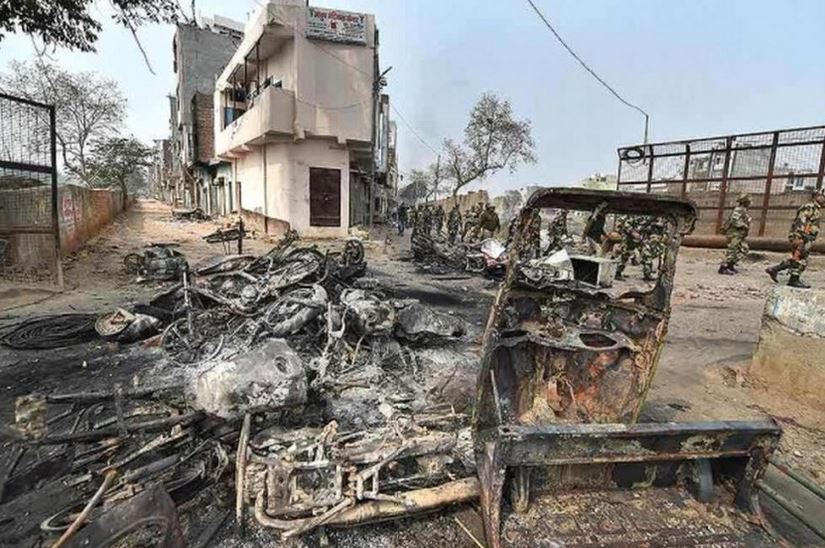
2020 Delhi riots: Charges of rioting, arson against Rajdhani school owner, 4 others

In an alleged incident of property torching and stone pelting during the 2020 northeast Delhi riots, a school owner and four others have been charged by a court for rioting and arson.
The court was hearing a case against Faisal Farooq, the owner of Rajdhani School, Md Parvez, Ashraf Ali, Sonu Saifi and Anis Qureshi.
They were accused of being a part of a riotous mob that torched a school (DRP Public School), houses and shops, besides pelting stones and throwing petrol bombs in the Dayalpur area on February 25, 2020.
According to the prosecution, the riotous mob was “using Rajdhani School as a base for the purpose of throwing petrol bombs and pelting stones at the properties belonging to Hindus”.
Also Read:Leaving communal riots behind, northeast Delhi celebrates Eid in harmony
“I find that (all) accused persons are liable to be tried for offences punishable under sections 120B (criminal conspiracy) read with 147 (rioting) 148 (rioting, armed with a deadly weapon), 153A (punishment for promoting enmity between different groups on the ground of religion, race, place of birth, residence, language), 427 (punishment for committing mischief and thereby causing loss or damage to the amount of Rs 50 or upwards) and 436 (mischief by fire or explosive substance with intent to destroy house) of the Indian Penal Code,” Additional Sessions Judge Pulastya Pramachala said in a recent order.
Farooq was also liable to be tried for offences under Indian Penal Code (IPC) sections 109 (punishment of abetment if the act abetted is committed in consequence and where no express provision is made for its punishment) and 505 (statements conducing to public mischief), the judge said.
The four other accused were further charged under sections 149 (every member of unlawful assembly guilty of offence committed in prosecution of common object) and 188 ( disobedience to order duly promulgated by public servant) of the IPC, Judge Pramachala added.
The court, however, discharged the accused from the provisions of the Prevention of Damage to Property (PDPP) Act, saying the investigating agency was “lax in not obtaining particulars of the properties allegedly damaged by the mob”.
Also Read: Gujarat riots: 22 acquitted due to lack of evidence
It also discharged them from the charge of attempt to murder, saying admittedly no injury was caused out of the alleged firing from the side of the mob, nor it could be said that such firing was done with the intention to kill anyone
The court said it was clear from the statements of several witnesses that accused Farooq instigated the mob to carry an attack on DRP School and destroy it as well “to teach a lesson to Hindus”.
After Farooq allowed his school to be used as a base by the riotous mob, arrangements were also made there to throw petrol bombs by catapult, the court said.
It said that “all these acts of accused Faisal (Farooq) show that he had a meeting of mind with other members of the mob”.
Also Read: India dubs BBC documentary on Gujarat riots a propaganda piece
“In this case, accused Parvez, Ashraf Ali, Sonu Saifi and Anis Qureshi indulged in targeting the properties of Hindus and their acts were apparently prejudicial to the harmony between communities of Muslims and Hindus and they did disturb the public tranquillity through their actions while accused Faisal Farooq instigated this mob to attack upon the property belonging to Hindu,” the court said.
Noting the evidence, the court said it was beyond doubt that an unlawful assembly was formed with a “common object to attack the properties belonging to persons from the Hindu community” and it was also part of the common object of this mob to attack a police team, resulting into throwing stones upon them.
“The account of facts given by witnesses show that accused Md. Parvez, Ashraf Ali, Sonu Saifi and Anis Qureshi participated in the acts of vandalism and arson being part of the mob, the court said.
The Dayalpur police station had filed a chargesheet against the accused persons under various sections of the IPC and provisions of the PDPP Act.
(With agency inputs)

